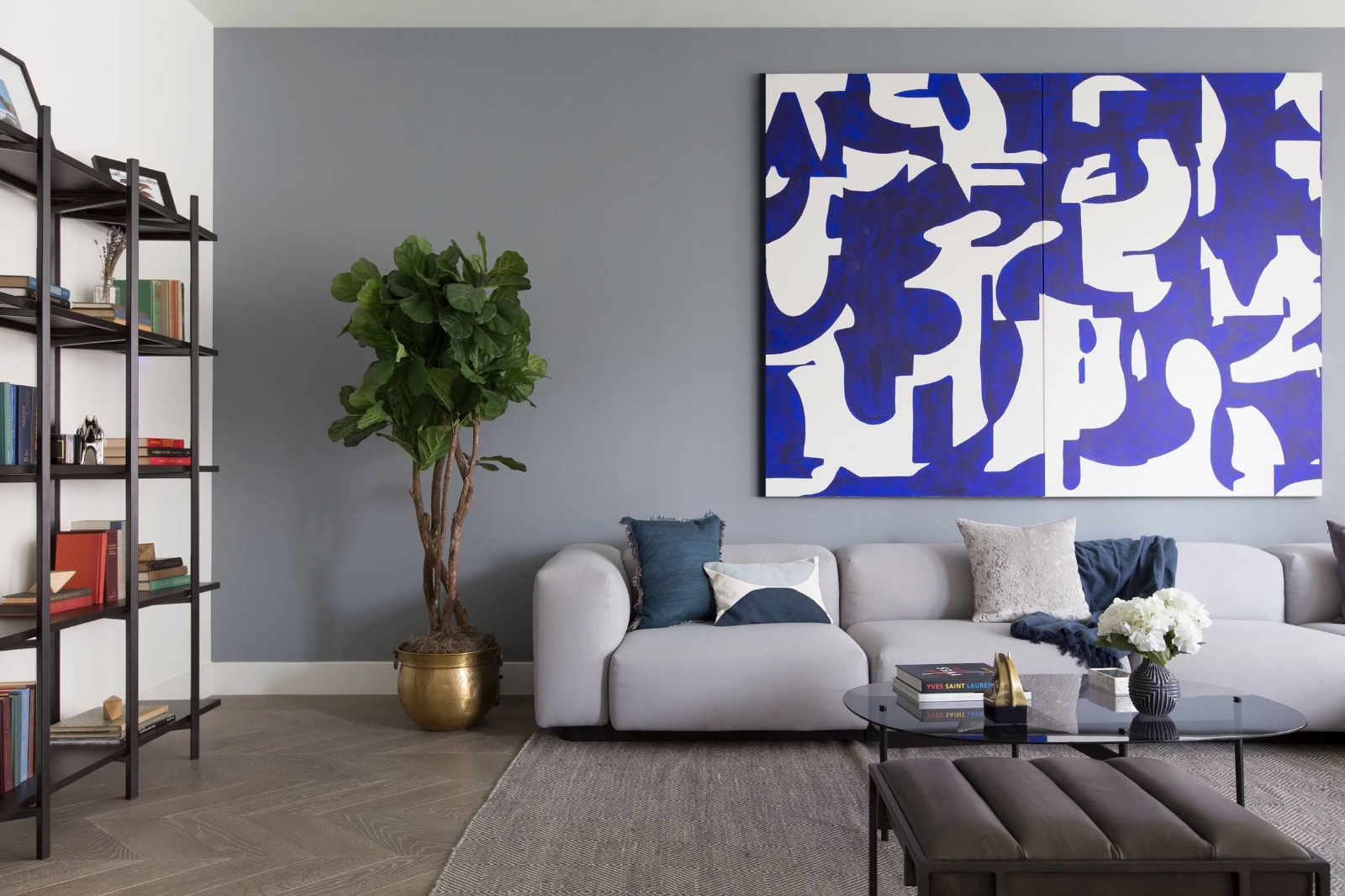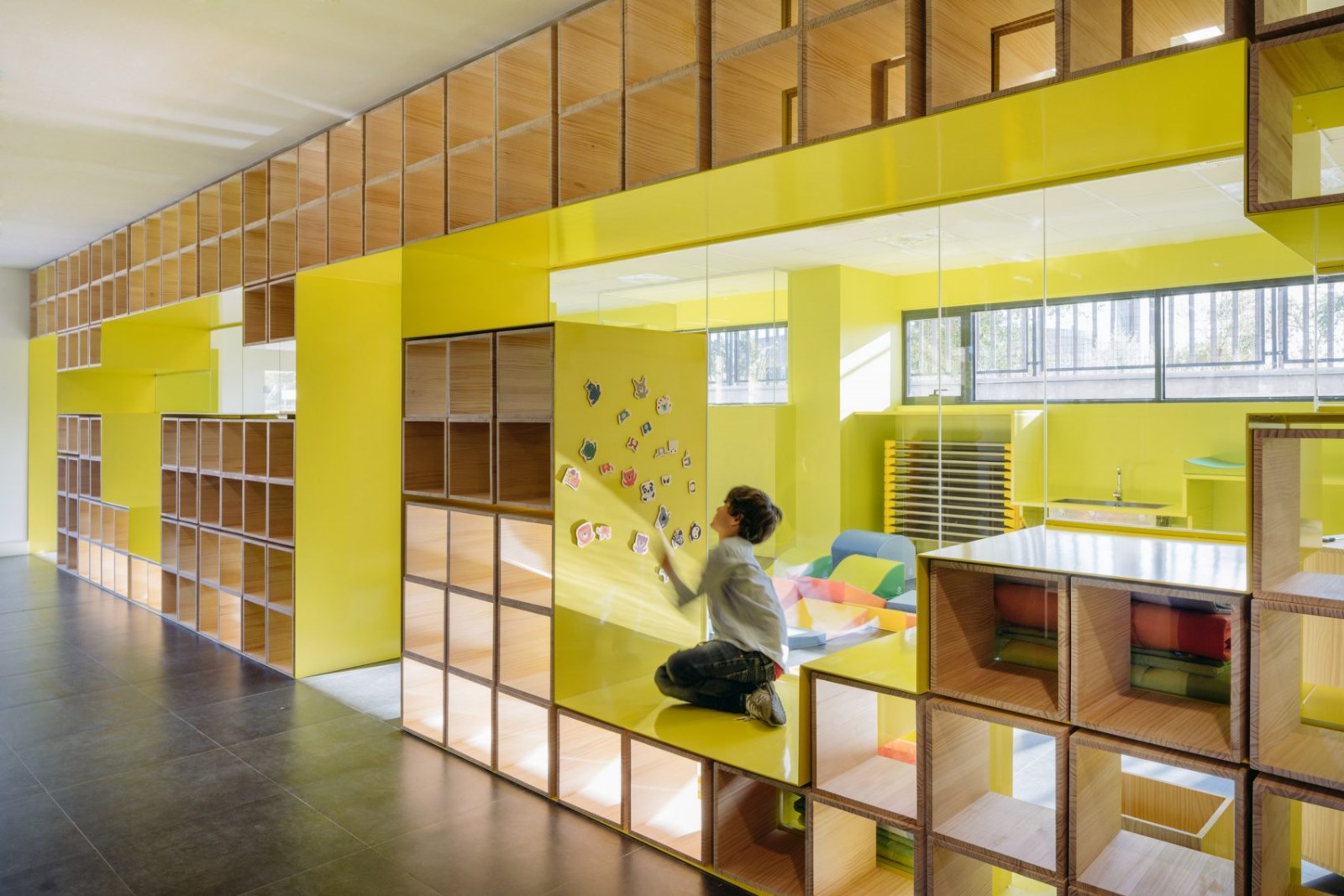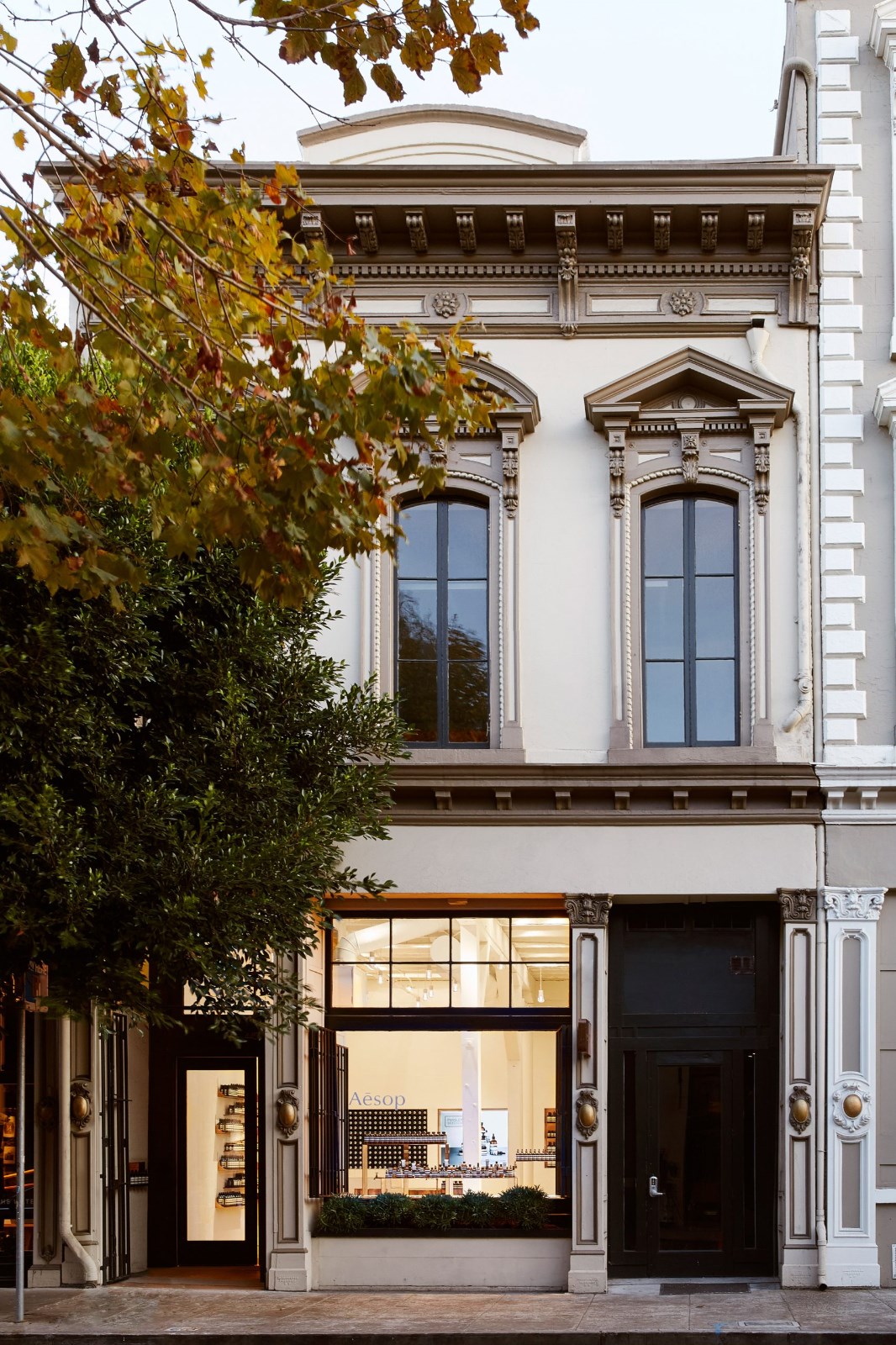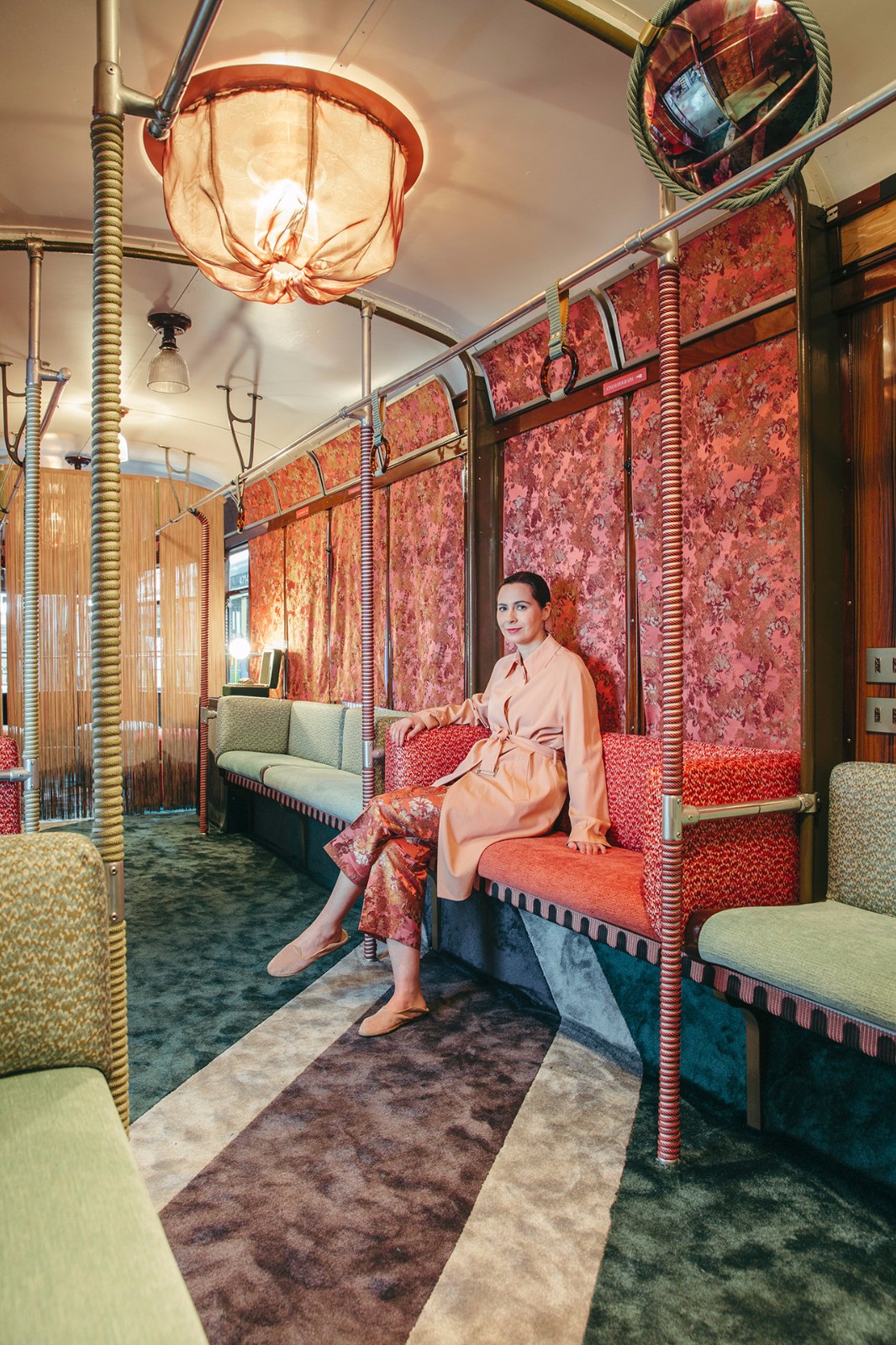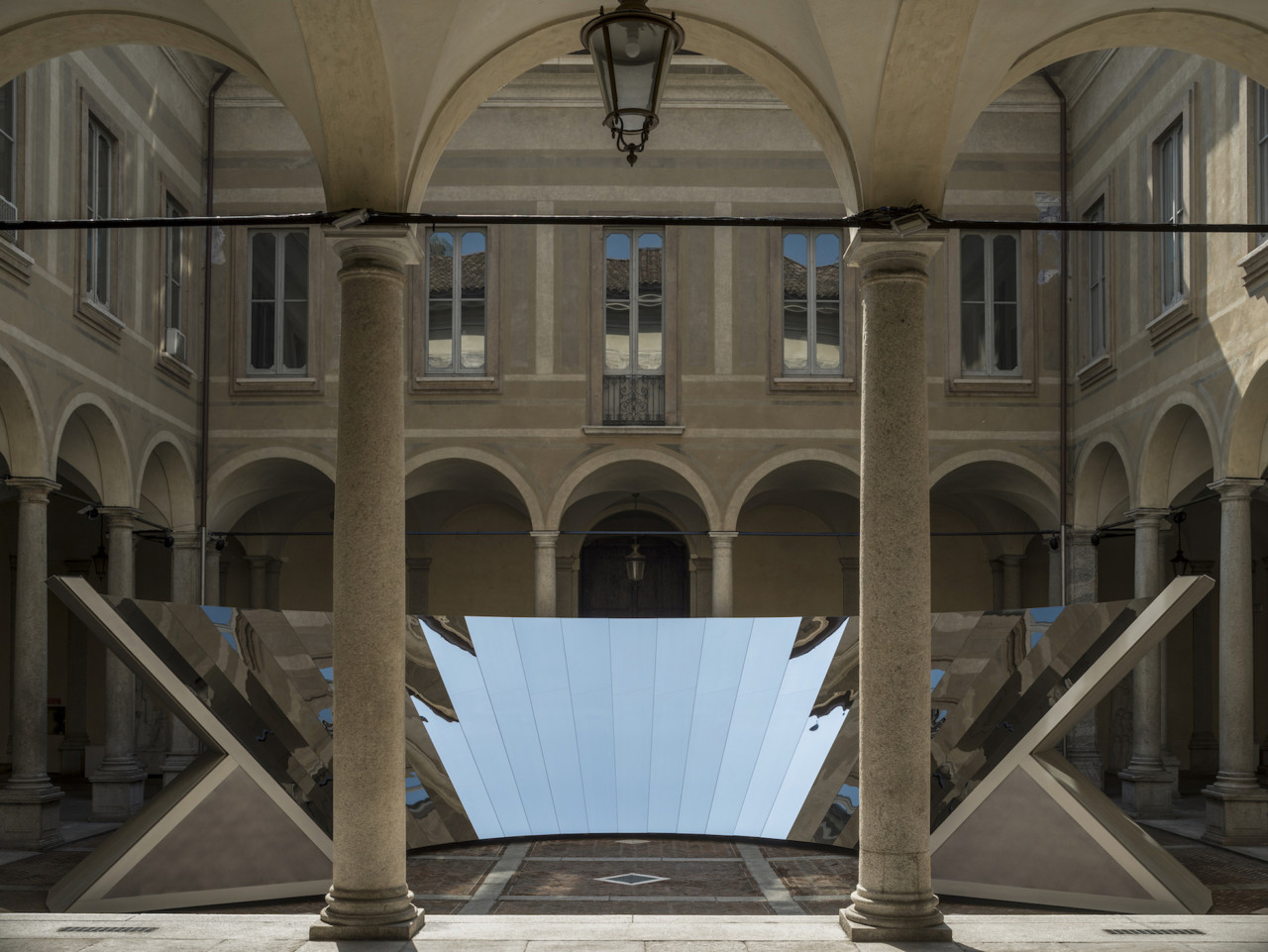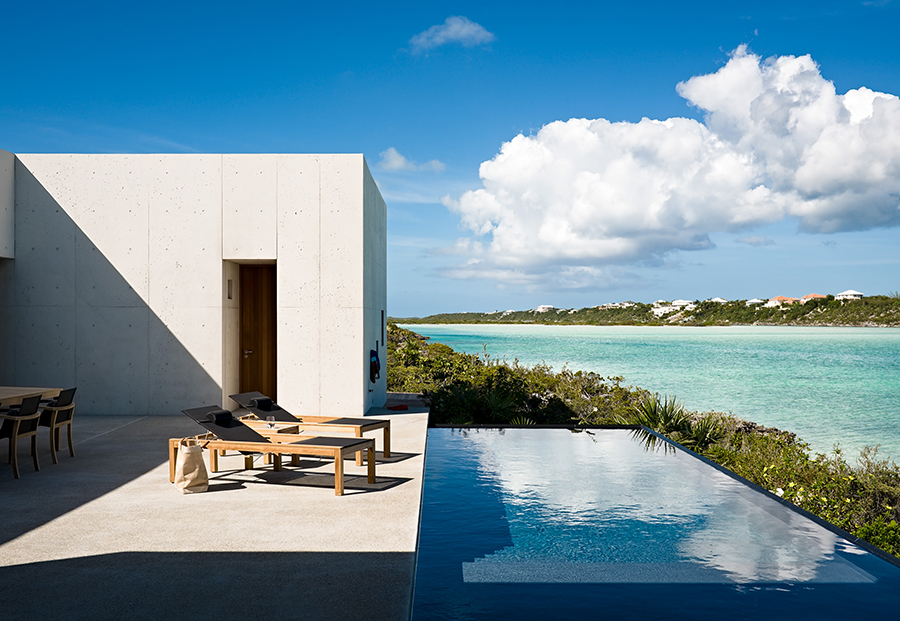Hammershus Visitor Center Arkitema Architects
2018-04-12 03:00
Arkitema Architects/Christoffer Harlang. Image © Jens Markus Lindhe
阿基特马建筑师/克里斯托·哈朗。图像(Jens Markus Lindhe)


架构师提供的文本描述。在波罗的海的丹麦岩石小岛Bornholm上有Hammershus,这是北欧最大的城堡废墟。在这里,一座新的游客中心被建在废墟对面的岩石上,几十年来这里一直是丹麦最受欢迎的旅游目的地。经过近五年的建筑工作,游客现在可以坐在咖啡馆里欣赏Hammershus的景观、周围的景观和海洋,或者他们可以在屋顶上散步,置身于大自然之中。该中心旨在作为一个谨慎的建筑,没有引起太多的关注本身与周围受保护的森林和岛上最著名的旅游景点。正是由于对周围环境的谨慎定位的要求,建筑师才有必要设计出一件构思良好的具有很高审美价值的建筑。
Text description provided by the architects. On the small Danish rocky island of Bornholm in the Baltic Sea lies Hammershus, the largest castle ruin in Northern Europe. Here, a new Visitor Centre has been built into the rocks opposite the ruin, which has been a popular tourist destination in Denmark for decades. After nearly five years of construction work, visitors can now sit in a café and enjoy the views of Hammershus, the surrounding landscape and the sea, or they can take a walk on the roof and be in the midst of nature. The centre is intended as a discreet building which does not draw too much attention to itself in relation to the surrounding protected forest and the best known tourist attraction on the island. Precisely the requirement for a discreet location in relation to the surroundings made it necessary for the architects to design a well-conceived piece of architecture with high aesthetic value.
Arkitema Architects/Christoffer Harlang. Image © Jens Markus Lindhe
阿基特马建筑师/克里斯托·哈朗。图像(Jens Markus Lindhe)


游客中心的设计采用简单的线条和高质量的材料,包括来自Bornholm的当地橡木,它发挥着突出的作用。建筑师们利用橡木板和特别设计的橡木配件和陈设与生混凝土的外墙和内墙的对比,形成一个诱人而温暖的结构。上面,悬空屋顶是风景小径系统的一个自然部分,一座桥从中间的露台上流过,从而延续了通往城堡废墟的小径系统,并在景观中创造了更多的观点。
The Visitor Centre is designed with simple lines and high-quality materials, including local oak from Bornholm which plays a prominent role. The architects play on the contrasts of the oak planks and the specially designed oak fittings and furnishings with the outer and inner walls of raw concrete to form an inviting and warm structure. Above, the suspended roof forms a natural part of the scenic path system, and a bridge runs from the terrace in front of the centre, thus continuing the path system towards the castle ruin and creating further viewpoints in the landscape.
Arkitema Architects/Christoffer Harlang. Image © Jens Markus Lindhe
阿基特马建筑师/克里斯托·哈朗。图像(Jens Markus Lindhe)


“这是一项令人难以置信的令人兴奋的任务,我们有一个固定的任务和一些非常明确的指导方针。我们已经选择了设计一个中心,我们使用了独特的材料来匹配这个位置,同时也专注于让这个地方有吸引力和脚踏实地。Arkitema高级合伙人保尔·舒莱恩(PoulSchülein)表示:“这一定是一个每个人都觉得受欢迎的地方,建筑结构也很容易理解。”
“It’s been an incredibly exciting task in which we’ve had a set assignment and some very clear guidelines. We’ve chosen to design a centre for which we’ve used exclusive materials to match the location, while also focusing on making the place feel inviting and down-to-earth. It must be a place where everyone feels welcome and where the architecture is easy to understand,” says Poul Schülein, Senior Partner at Arkitema.
Arkitema Architects/Christoffer Harlang. Image © Jens Markus Lindhe
阿基特马建筑师/克里斯托·哈朗。图像(Jens Markus Lindhe)


可使用的屋顶具有独特的景观,Arkitema和ChristoffeHarlang所选择的设计元素之一是一个屋顶,它构成了丘陵地貌的一部分。因此,游客在接近Hammershus时无法看到游客中心。这给游客提供了两个直接的好处:建筑不会分散人们对主要景点的注意力,屋顶成为自然的有利位置,有充足的空间欣赏景观。
Useable roof with unique views One of the design elements which Arkitema and Christoffer Harlang has chosen to include in the project is a roof that forms part of the topography of the hilly landscape. Visitors thus cannot see the Visitor Centre when they approach Hammershus. This offers two immediate advantages to visitors: the building does not distract focus from the main attraction, and the roof becomes a natural vantage point with ample space for enjoying the views.
Arkitema Architects/Christoffer Harlang. Image © Jens Markus Lindhe
阿基特马建筑师/克里斯托·哈朗。图像(Jens Markus Lindhe)


轻型屋面使建筑开放和透光,具有良好的空间品质和两侧的光线。它被设计成一个景观看台,有很好的座位和足够的空间供散步。一种公共空间,它通过向游客开放而把东西归还给这个地方,并且从本质上说,它全年都是可以进入的。
The light roof makes the building open and transilluminated with good spatial qualities and light from both sides. It is designed as a landscape grandstand with good seating and plenty of space for walking about. A public space which gives something back to the place by being available to visitors, and which, in the nature of things, is accessible throughout the year.
Arkitema Architects/Christoffer Harlang. Image © Jens Markus Lindhe
阿基特马建筑师/克里斯托·哈朗。图像(Jens Markus Lindhe)


“我们选择了一个可使用的屋顶,以突出游客对景观的体验,并在接近中心的时候淡化建筑物的外观。”屋顶因此成为周围路径系统的一个自然部分,而不是景观体验中的一个令人不安的因素。换句话说,我们为游客提供了一个额外体验的机会,如果他们只是直接走进一个游客中心,他们就不会有这样的体验。创造一个充满活力的景观过程对我们来说是很重要的,在这个过程中,游客们有很多机会去体验自然环境和历史的毁灭,“PoulSchülein解释说。
“We’ve chosen a useable roof to highlight the visitors’ experience of the landscape and to play down the appearance of the building as they approach the centre. The roof thus becomes a natural part of the surrounding path system, rather than a disturbing element in the landscape experience. In other words, we give visitors the opportunity for an extra experience that they wouldn’t have had if they were merely to walk straight into a visitor centre. It’s been important for us to create a dynamic landscape course, in which the visitors have many opportunities to experience the natural surroundings and the historical ruin,” explains Poul Schülein.
Situation Plan - 1-2000 small
情况计划-1-2000小规模


Arkitema建筑师担任这项任务的全面服务顾问,并与Arkitema City教授、Christffay Harlang教授和Wissenberg A/S合作完成这项任务。
Arkitema Architects has acted as full-service consultant on the assignment, which has been performed in cooperation with Arkitema Urban, Professor Christoffer Harlang and Wissenberg A/S.
Arkitema Architects/Christoffer Harlang. Image © Jens Markus Lindhe
阿基特马建筑师/克里斯托·哈朗。图像(Jens Markus Lindhe)










































































Architects Arkitema Architects, Christoffer Harlang
Location Hammershus, Bornholm , Denmark
Area 1000.0 m2
Project Year 2018
Photographs Jens Markus Lindhe
Category Visitor Center
Manufacturers Loading...


















